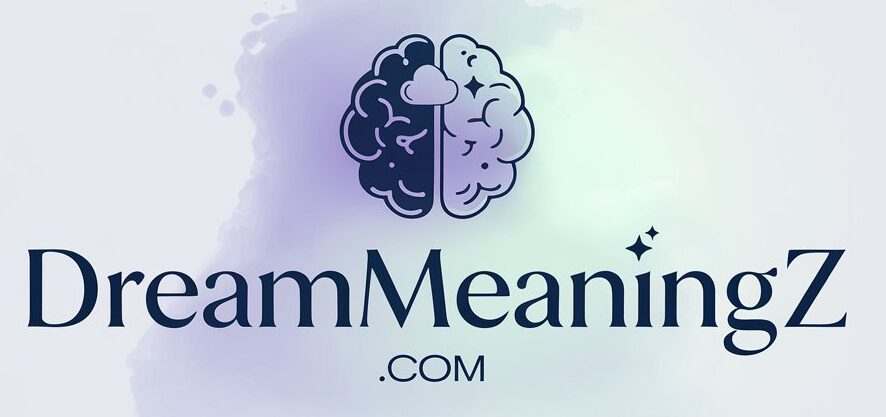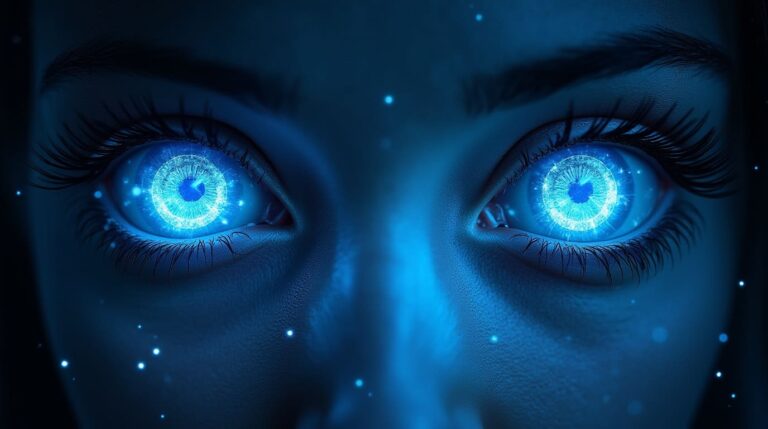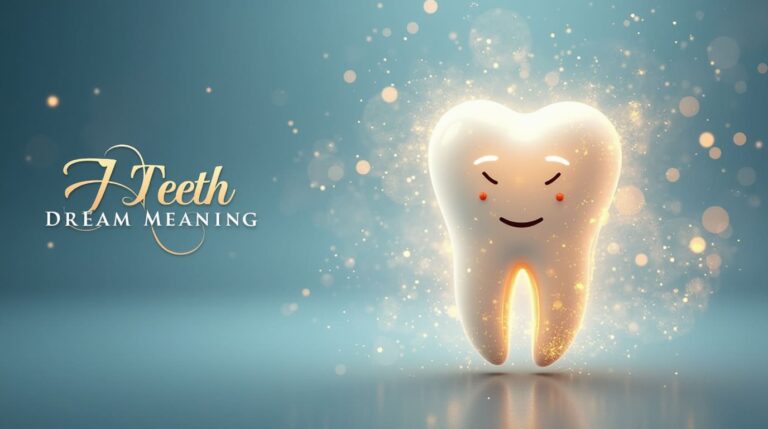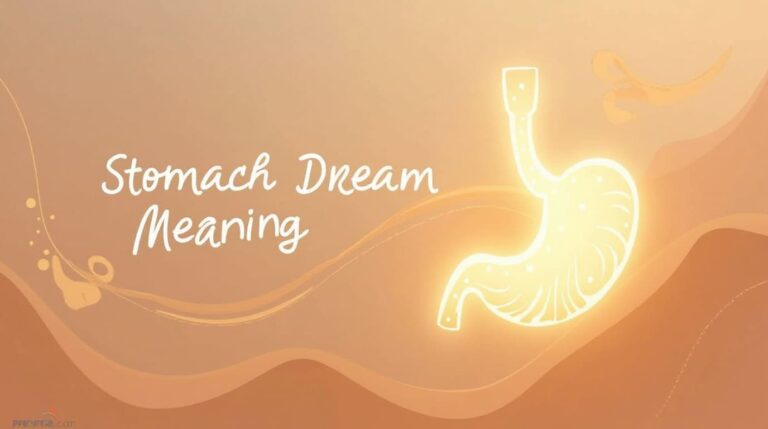Brain Dream Meaning
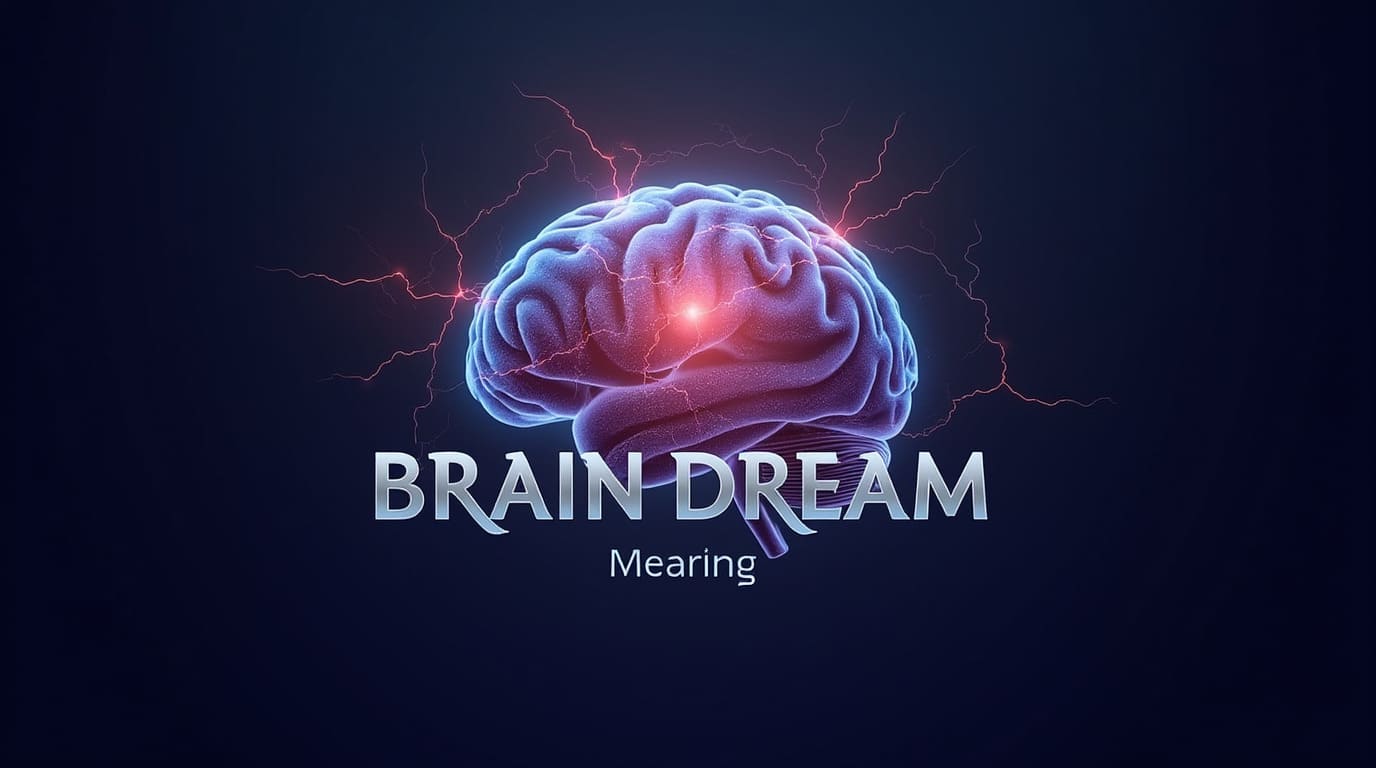
Dreams about the brain can deeply affect our lives. They show us hidden parts of our personality and behavior. The brain in dreams is linked to our thinking, solving problems, and creativity.
By looking at brain symbolism in dreams, we learn more about ourselves. We see our growth and development possibilities. About 65% of people see brain dreams as signs of wealth and creativity leading to success.
Brain dreams can vary, like seeing your own brain or dreaming of brain surgery. They can also involve different brains, like a dog’s or a cat’s. Each scenario offers unique insights into our thoughts, feelings, and actions.
Our subconscious mind plays a big role in these dreams. This shows how important brain symbolism is in dream interpretation. For 55% of people, dreaming of their brain means it’s time to seek knowledge or learning opportunities.
Different Forms of Brain Dreams
Brain dreams can show many sides of our minds. They reflect our problem-solving skills and thoughts. These dreams are shaped by our experiences, feelings, and memories.
Dreams about brain surgery often mean we need to change or grow. They suggest we should look at our thoughts and feelings differently. This helps us solve problems better and understand ourselves.
Exposed Brain Imagery
Dreams with exposed brains are very telling. They show our deepest thoughts and feelings. These dreams tell us to face and solve emotional issues.
Brain Surgery Scenarios
Dreams about brain surgery show our wish for change. They point to our need to improve our thinking and solve problems. Exploring these dreams helps us understand our minds better.
Brain-Related Actions in Dreams
Dreams about brain actions, like solving puzzles, show our thinking skills. They tell us to challenge ourselves and think deeply. This boosts our brain power and emotional smarts.
| Dream Theme | Symbolic Meaning | Intellectual Capability |
|---|---|---|
| Brain Surgery | Transformation, change | Problem-solving, critical thinking |
| Exposed Brain Imagery | Innermost thoughts, emotions | Emotional intelligence, self-awareness |
| Brain-Related Actions | Mental challenges, strategic thinking | Problem-solving, critical thinking |
Symbolic Representation of Brain Dreams
Brain symbolism in dreams is complex and rich. It offers insights into our thinking and problem-solving abilities. Unlike the whole head, which shows our personality and views, the brain symbolizes our intellect. Understanding brain symbolism helps us grasp our thoughts, feelings, and actions better.
Studies reveal that brain symbolism is shaped by many things. These include our culture, life experiences, and emotions. For instance, a study by Cartwright et al. (2006) found a link between waking thoughts and dream occurrences. This shows how brain symbolism ties to our everyday lives and relationships.
Key aspects of brain symbolism include: * Brain function and activity during sleep and wakefulness * The role of brain symbolism in problem-solving and decision-making * The influence of cultural background and personal experiences on brain symbolism * The connection between brain symbolism and intellectual capability, including cognitive function and memory consolidation
Exploring brain symbolism helps us understand our minds and behaviors better. This knowledge can boost our problem-solving skills and cognitive abilities. It also aids in personal growth and self-awareness.
| Brain Symbolism Aspect | Description |
|---|---|
| Brain Function | Represents cognitive processes, such as thinking and problem-solving |
| Cultural Influence | Shapes brain symbolism based on personal experiences and cultural background |
| Intellectual Capability | Connected to brain symbolism, influencing cognitive function and memory consolidation |
Cultural Perspectives on Brain Dreams
Dreams about brains mean different things in different cultures. They show how each culture views the mind and thinking. In some places, brain dreams show a lot of emotional trouble. In others, they mean growing smarter and solving problems.
Brain dreams are shaped by how each society sees the brain. For example, a big brain in a dream might mean being smart. Not having a brain could mean not knowing much or being unclear. These dreams also help us understand our deep feelings and struggles.
Western Interpretations
In Western cultures, brain dreams are about mental health and being smart. The brain is where we learn. These dreams tell us to use our brains to solve problems in life.
Eastern Dream Philosophy
In Eastern cultures, brain dreams are about growing spiritually and being aware. The brain is a sign of being wise and patient. These dreams tell us to work on being smarter and more patient.
Indigenous Dream Wisdom
Indigenous cultures see brain dreams as a way to connect with ancestors and nature. The brain links us to our land, community, and past. These dreams remind us to respect these ties.
Psychological Analysis of Brain Dreams
Brain dreams offer insights into our mental state. They show what affects our thoughts and actions. By analyzing these dreams, we can understand our brain symbolism and how it relates to our thinking and problem-solving.
Studies show that brain dreams can be influenced by many things. For instance, brain surgery or actions can change them. People who sleep better in REM sleep tend to think sharper after waking up. On the other hand, not sleeping enough can make us more emotional, leading to anger and fear.
Some important findings about brain dreams are:
- About 5% of people have nightmares often, which can block emotional growth from those dreams.
- Half of our dreams reflect what happens in our daily lives.
- During REM sleep, our brain works a lot like when we’re awake. Studies show it’s almost as active as when we’re awake, focusing on memories and emotions.
Looking into the psychological side of brain dreams helps us understand ourselves better. It can improve our thinking and emotional control.
| Factor | Description |
|---|---|
| REM Sleep | Accounts for approximately 20-25% of total sleep duration in adults |
| Brain Activity | Resembles wakefulness, with near 70% activation level of brain regions associated with visual memory and emotions |
| Emotional Regulation | Improved through enhanced REM sleep and reduced sleep deprivation |
Common Brain Dream Scenarios
Brain dreams show different scenarios, showing our hidden thoughts and feelings. They can link to our thinking skills, solving problems, and emotions. Looking at common brain dream scenarios helps us understand our subconscious mind and its tie to our real lives.
Brain Damage Dreams
Brain damage dreams often mean we feel like we’re losing our mental edge. These dreams might show we’re having trouble solving problems or feeling too stressed in our daily lives.
Brain Enhancement Dreams
Brain enhancement dreams, though, show our wish to grow and get better. They hint at wanting to boost our thinking, solve problems better, or get past emotional hurdles.
Brain Control Dreams
Brain control dreams can mean we feel powerful or out of control. They might show we’re doubting ourselves, scared, or anxious. This can affect how we think and solve problems.
Some common themes in brain dream scenarios include:
- Loss of memory or cognitive function
- Enhanced mental clarity or focus
- Feeling overwhelmed or stressed
- Desire for personal growth or self-improvement
By looking at these themes and scenarios, we can understand our brain dream scenarios better. They help us see how they relate to our thinking, problem-solving, and feelings.
| Brain Dream Scenario | Symbolic Meaning | Reflection in Waking Life |
|---|---|---|
| Brain Damage Dreams | Loss of intellectual capability | Struggling with problem-solving or feeling overwhelmed |
| Brain Enhancement Dreams | Desire for personal growth | Seeking to expand intellectual capability or enhance problem-solving skills |
| Brain Control Dreams | Sense of empowerment or lack of control | Struggling with self-doubt, fear, or anxiety |
Brain Dream Meaning Through History
Throughout history, brain dreams have been seen in many ways. In ancient Greece, the brain was linked to Athena, the goddess of wisdom. Today, research shows brain dreams can mean mental clarity and confidence in making choices. The brain dream meaning has always been fascinating, with many wanting to grasp its symbolic depth.
A historical perspective shows brain dreams have been part of human culture for ages. In ancient times, dreams were thought to carry prophecies from the gods. The ability to understand these dreams was seen as a valuable skill. People believed brain dreams could reveal intelligence, creativity, and self-awareness.
Studies suggest brain dreams are linked to our intellectual capability and emotions. For instance, a study found dream characters can offer deep insights. This shows how complex brain dreams can be. Here’s a table with common brain dream scenarios and their meanings:
| Dream Scenario | Possible Meaning |
|---|---|
| Healthy brain | Mental clarity and confidence in decision-making |
| Damaged brain | Mental fatigue or confusion |
| Brain surgery | Need to address self-doubt or negative thought patterns |
| Consuming brains | Desire for knowledge or insight, possible feelings of being overwhelmed |
Looking at the brain dream meaning through history helps us understand these dreams better. This understanding can improve our self-awareness and emotional responses. It can lead to a more fulfilling life.
Emotional Connections in Brain Dreams
Brain dreams can deeply affect our emotions, showing feelings like fear, anxiety, or growth. Studies show dreams can change our mood and help us manage emotions. A 2017 study found dreams can make us feel better the next day.
These dreams can also use symbols to talk about our feelings. For example, dreams about being chased or falling might show our deep fears or anxieties.
Fear and Anxiety Manifestations
Fear and anxiety often show up in brain dreams, causing nightmares or distress. A 2020 study linked frequent nightmares to mental health issues like anxiety and depression.
Intellectual Growth Symbols
Brain dreams can also hint at our mental growth. Harvard psychologist Deirdre Barrett found dreams can help us solve problems and think creatively. This shows a link between dreaming and improving our minds.
Looking into brain dreams can help us understand our emotions better. It lets us see the symbols in our dreams and how they connect to our feelings. This knowledge can help us manage our emotions and improve our mental health.
| Emotional Connection | Brain Symbolism | Intellectual Growth |
|---|---|---|
| Fear and Anxiety | Nightmares, distressing themes | Problem-solving skills, creativity |
| Intellectual Growth | Symbols of cognitive development | Insights, enhanced creativity |
Physical Health Reflections in Brain Dreams
Brain dreams can deeply affect how we see our physical health. By looking into brain symbolism in dreams, we can learn a lot about our health. Research shows that brain dreams can reveal issues like brain damage or disease.
Studies have found that people with certain health problems, like epilepsy or heart disease, often dream the same things. These dreams might show how the brain tries to deal with health issues. Also, some medicines can mess with REM sleep, which affects brain dreams.
Important things to think about when looking at brain dreams and health include: * How brain symbolism relates to health * How medicines can change REM sleep and dreams * The connection between recurring dreams and health problems, like sleep apnea * The use of cognitive behavioral therapy for sleep and dream issues
| Physical Health Issue | Brain Dream Connection |
|---|---|
| Brain Damage | Recurring dreams or nightmares |
| Heart Disease | Disrupted REM sleep or vivid dreams |
| Sleep Apnea | Recurring dreams or sleep disturbances |
Understanding the link between brain dreams and health can give us a better view of our well-being. This knowledge helps us find ways to improve our health and lower the risk of health problems. By seeing the role of brain symbolism and intelligence in dreams, we can take a more complete approach to health and wellness.
Mind-Body Connection Messages
Brain dreams can show us how our mind and body are connected. They give us clues about our emotional and mental health. By looking into these clues, we can understand the deeper meaning of brain dreams and how they affect our health.
Studies say about 70% of recurring dreams are about unresolved emotional issues. This shows a strong link between dreams and our mental health. Exploring the mind-body connection in brain dreams helps us grow and become more aware of ourselves. By understanding brain symbolism, we can learn more about our thoughts, feelings, and actions.
Stress Indicators
Stress and anxiety often show up in brain dreams. Recognizing these signs can help us manage our stress better. This can improve our mental health and strengthen our mind-body connection.
Mental Health Signals
Mental health messages in brain dreams offer valuable insights. By noticing these signals, we can spot areas needing attention for our mental health. This helps us keep our mind and body in balance.
Personal Growth Signs
Brain dreams can also guide us toward personal growth. By recognizing these signs, we can gain a deeper understanding of ourselves. This leads to greater personal growth and a more harmonious mind-body connection.
| Category | Description | Percentage |
|---|---|---|
| Recurring Dreams | Linked to unresolved emotional issues | 70% |
| Stress Indicators | Manifestation of stress and anxiety in brain dreams | N/A |
| Mental Health Signals | Insights into psychological well-being | N/A |
| Personal Growth Signs | Guidance toward self-awareness and self-improvement | N/A |
Scientific Research on Brain Dreams
Scientific studies have made big strides in understanding brain dreams. They’ve given us insights into their symbolic meaning and how they show our intellectual capability. It’s found that brain dreams are connected to how our brain processes and keeps memories, mainly emotional ones.
Research has also looked into the symbolism in dreams. It suggests that our brain uses symbols to share complex feelings and ideas. For instance, a study showed that people who napped after solving a maze in their dreams did better than those who stayed awake and thought about it.
Some key findings from scientific research on brain dreams include:
- Approximately 95% of the time spent in REM sleep involves dreaming, according to findings published in 2017 in the journal Nature Neuroscience.
- The amygdala, which is involved in emotional processing, is very active during dreaming, as demonstrated by studies dating back to the 1990s.
- Areas of the brain responsible for visual processing are also active during dreaming, while the frontal and prefrontal cortices, associated with planning and logic, show reduced activity.
These findings show how important research is in understanding brain dreams. They reveal how dreams relate to our intellectual ability and symbolism in the brain. By studying brain dreams, we can better appreciate their importance and role in our lives.
Personal Dream Journal Methods
Keeping a dream journal is a great way to understand your brain symbolism. It helps unlock your subconscious mind. Every night, you dream for about two hours, even if you don’t remember them. It’s key to find a way to capture and analyze these dreams.
Strong emotions in your waking life can make you remember dreams better. Dreams with strong emotions are more vivid. A dream journal helps spot patterns and themes in your dreams. This way, you can grasp the messages your brain sends through dreams.
Recording Techniques
There are many ways to record dreams, like setting intentions or sharing them with others. Many find that writing down their dreams boosts creativity and gives deeper insights. Setting intentions can improve dream recall over time.
Pattern Recognition
Looking for patterns in your dreams can reveal a lot about your brain symbolism. Research shows that 60-75% of dreams help process emotions. About 80% of dream content relates to daily experiences, according to some theories.
Interpretation Tools
There are many tools to help understand dreams, like dream dictionaries or online resources. But, it’s important to use them critically. Many online resources lack scientific proof. By combining these tools with your intuition, you can better understand your dreams.
| Technique | Benefits |
|---|---|
| Keeping a dream journal | Improves dream recall, enhances creativity, and provides deeper insights into inner life |
| Setting intentions | Leads to enhanced dream remembrance over time |
| Sharing dreams with others | Aids in recall and stimulates further insights |
Conclusion
Brain dreams are a gateway to unlocking our full mental and emotional capacity. They help us solve problems and grow as individuals. By understanding the brain dream meaning, we can tap into our subconscious mind.
Recent studies show brain dreams improve our emotional control, creativity, and memory. Good sleep and mindfulness practices help us access these benefits. This way, we can use our brain’s full power.
Exploring brain dreams can change our lives. It helps us face challenges and find new opportunities. By keeping a dream journal and understanding symbols, we can learn a lot about ourselves.
